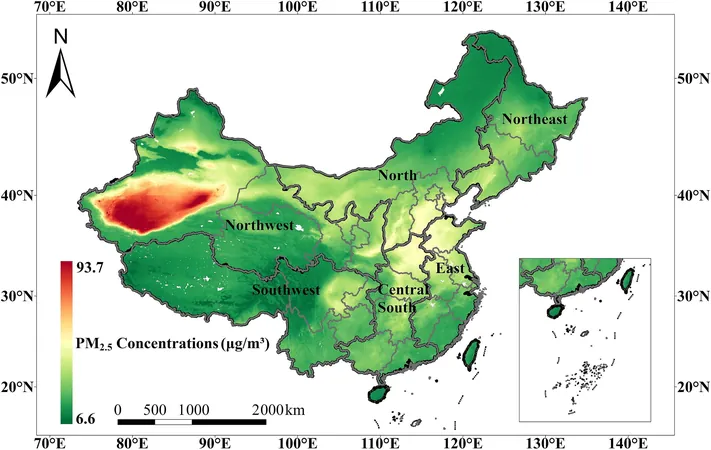
Unlocking Sweet Potato Secrets: How DNA Decoding Could Transform Global Food Security
2025-08-17
Author: Charlotte
Groundbreaking Genetic Discovery of Sweet Potatoes
In an exciting breakthrough, scientists have successfully decoded the complete set of chromosomes for the "Tanzania" variety of African sweet potato! This key discovery reveals that this crop originated from a combination of a wild species from Ecuador and a Central American counterpart. With millions relying on sweet potatoes as a staple food, understanding its genetic makeup is crucial for tackling food security and enhancing nutritional value.
The Complex World of Sweet Potato DNA
Unlike humans who have two sets of chromosomes, sweet potatoes boast six! This hexaploidy presents a challenging puzzle for researchers trying to improve sweet potato varieties through breeding. But the team led by Professor Zhangjun Fei at the Boyce Thompson Institute has tackled this complexity head-on, paving the way for significant advancements in crop development.
A Revolutionary Mapping Method
To decode the sweet potato's DNA, the researchers meticulously resolved each "haplotype"—the distinct sequences on each of the six chromosome copies. This careful phasing prevented averaging issues that often obscure critical differences, offering an accurate blueprint of the sweet potato’s genetic structure.
Mapping the Full 90 Chromosomes!
The newly completed assembly covers all 90 chromosomes, with individual homologues distinguished, finally aligning with the biological reality of the hexaploid genome. This comprehensive map enables scientists to pursue targeted population studies and trait identification, heralding a new era in sweet potato research.
Tracing Ancestral Roots and Trait Discovery
A significant portion of the genome can be traced back to the wild species Ipomoea aequatoriensis from Ecuador, as well as a Central American relative. This intricate weave of genetics sheds light on how sweet potatoes evolved through hybridization and what that means for breeders aiming to improve traits like disease resistance and adaptability.
Navigating the Genetic Maze
This unique genetic mosaic allows breeders to pinpoint specific traits to their ancestral origins, ensuring that desirable genetic attributes are passed down without unwanted traits. The team’s innovative approach has revealed that the mixing of chromosomes in sweet potatoes is far more intricate than in other crops like wheat.
Polyploidy: A Key to Resilience
Sweet potatoes' hexaploid nature acts as a buffer against harmful mutations, enabling the plant to adapt better to stressors like diseases and climate variability. This genetic advantage has stabilized the crop's performance even in challenging environmental conditions, contributing to its status as a global food staple.
Implications for Future Crop Breeding
With this newly minted genetic map, breeders can accurately associate desirable traits with their ancestral segments. This knowledge can refine breeding practices by minimizing linkage drag—ensuring key qualities remain intact while enhancing resilience and stress tolerance.
Setting the Stage for Food Security Innovations
The phased reference map offers a groundbreaking framework for researching sweet potato variants across different regions. As the world's food crises loom, deploying these genetic insights into practical breeding programs can make a significant difference. This study, featured in *Nature Plants*, sets a precedent that extends beyond sweet potatoes, impacting how we approach legions of globally vital crops.









 Brasil (PT)
Brasil (PT)
 Canada (EN)
Canada (EN)
 Chile (ES)
Chile (ES)
 Česko (CS)
Česko (CS)
 대한민국 (KO)
대한민국 (KO)
 España (ES)
España (ES)
 France (FR)
France (FR)
 Hong Kong (EN)
Hong Kong (EN)
 Italia (IT)
Italia (IT)
 日本 (JA)
日本 (JA)
 Magyarország (HU)
Magyarország (HU)
 Norge (NO)
Norge (NO)
 Polska (PL)
Polska (PL)
 Schweiz (DE)
Schweiz (DE)
 Singapore (EN)
Singapore (EN)
 Sverige (SV)
Sverige (SV)
 Suomi (FI)
Suomi (FI)
 Türkiye (TR)
Türkiye (TR)
 الإمارات العربية المتحدة (AR)
الإمارات العربية المتحدة (AR)